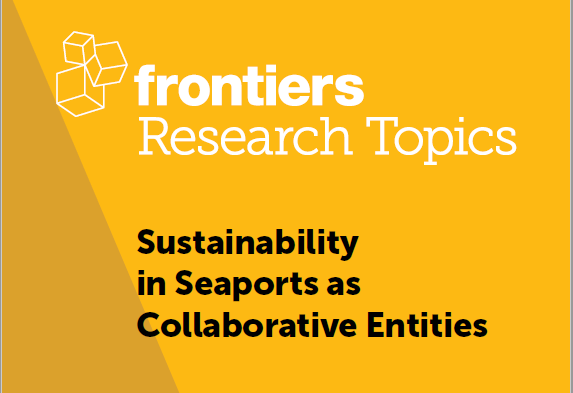The Sustainable Future Ports
Moving towards sustainability is also a social challenge that entails international and national law, urban planning and transport, local and individual lifestyles and ethical consumerism. The sustainable future port is a concept considering not only to the economical scope but also the environmental and social scopes. The concept of “Sustainability” for ports is the integration of the environmentally friendly methods of port activities, operations and management. In other words, in a sustainable way: Any development causes the minimum possible impacts, contributing to improving measures and controls for the quality of the air, water, noise and waste.
Future ports are committed to being green while building prosperity for current and future generations. For this purpose, the port sustainability will be the core of development strategies and plans; beyond ‘systems and policies’. It could be the most important step for ports towards becoming a more sustainable business, setting a foundation in which to evolve. Within the scope of sustainability, the future port approach can be achieved through sustainable planning with five crucial steps of smart port operations, preserve of the environment, the human element, planning a bright future, and port communities, (See below figure).
The sustainability plans should be dynamic, therefore to be reviewed each year to ensure that the ports remain abreast of emerging industry trends and new technologies. Ther are some measures for the establishment of future sustainable seaports, including but not limited to:
- The application of policies and regulatory framework at ports for the reduction of the emissions of harmful substances,
- A green design of the port-city landscape and integration of port to the urban area which includes trees that absorb noise and air pollution,
- Utilization of renewable energy sources inport operations and activities,
- The transition of the ports from the linear economy to the Circular Economy in order to redefine products and services to design waste out, while minimizing negative impacts.
- Establishment of the Energy Management System (EnMS) and/or Environmental Management System to improve the port environmental profile and increase the energy efficiency.
- Application of best practices from leading ports in environmental issues, such as ports with certificates labelled as EcoPorts initiative.
- The inclusion of the term “green growth “in the further development of the port systems and the establishment of environmental planning within the mentioned areas.
- Digitalization and automation of port operations and activities.
Sustainability in Seaports as Collaborative Entities
Sustainability in Seaports as Collaborative Entities

Ports provide an essential service for the movement of goods and passengers around the globe as a link between the sea and the land. They provide direct and indirect jobs globally in areas including transport, port-based activities, and shipping services, and are vital to the economy of the cities and regions within which they are located.
Ports face threats from climate change, through sea-level rise or the increasing frequency of severe weather events, and also challenges from changes in shipping industry requirements, emissions reduction, stakeholder requirements and the need for improved collaboration between ports with local communities/government agencies. In order to achieve more sustainable and resilient ports now and in the future, development of solutions to meet these threats and challenges is vital. .
Areas where port-specific solutions are needed include: improving transport modes between ports and the hinterland; changes in energy use, emissions reduction and waste reduction measures within port boundaries and for for ships using a port; improving collaboration and cooperation between Port Authorities, stakeholders, policy-makers ,and governance bodies; and developing links with local academic institutions to undertake environmental and technical research and development.
By framing such solutions within the March 2019 World Port Sustainability Program (WSPS), this Special Collection welcomes papers that provide a better understanding of how ports can better contribute to sustainability, in five areas:
- Future-proofing Infrastructure (SDGS 4-9 and 13-15);
- Climate and Energy Issues (SDGs 7-9 and 11-13)
- Safety and Security (SDGs 3, 8, 9, 11, 12 and 16);
- Governance and Ethics (SDGs 1-5 and 8)
- Societal Integration
Theoretical and practical manuscripts are welcomed from academic researchers, port practitioners, governance bodies, and other relevant bodies, or some combination of these.
We look forward to your submissions!
We look forward to your submissions!
For more information:
sustainability@frontiersin.org
fro.ntiers.in/V96g
TOPIC EDITORS
TOPIC EDITORS
Angela Carpenter, University of Leeds, United Kingdom
R. Karimpour, University of Genoa, Italy
Ernesto D.R. Santibanez Gonzalez, University of Talca, Chile
Maria Francesca Renzi, Rome Tre University, Italy
Rodrigo Lozano, University of Gävle, Sweden

